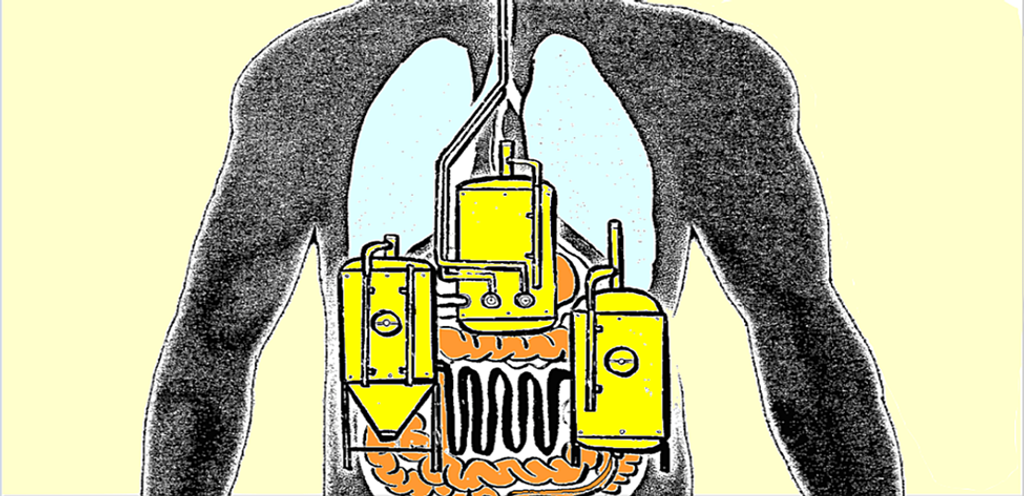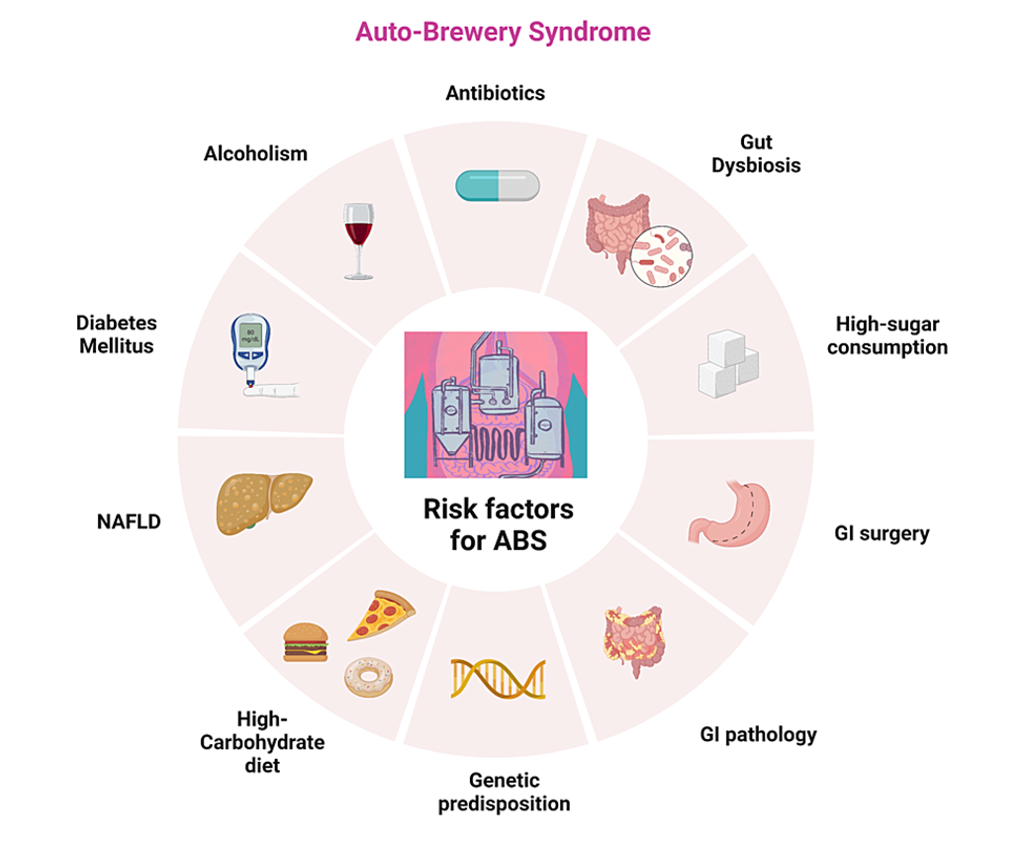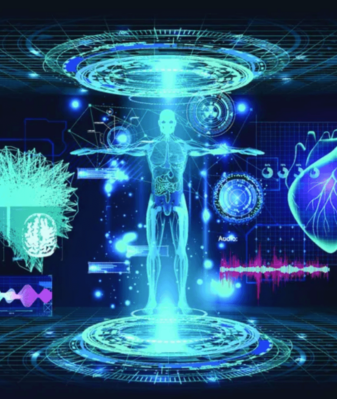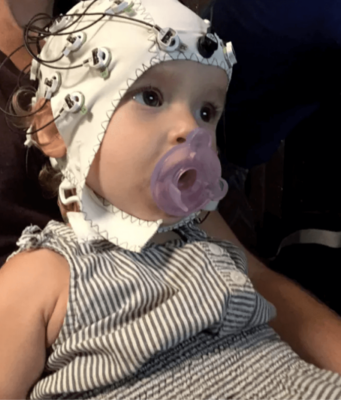Is it possible to get drunk without really drinking? Mark Mongiardo, a former New Jersey resident, confirmed this. Mongiardo suffers from Auto-Brewery Syndrome (ABS), a rare condition where the body produces alcohol.
Early Symptoms and Professional Challenges
He recalls the onset of his symptoms in 2006 while he was employed as a high school teacher and coach in New Jersey. Colleagues began to notice the scent of alcohol on him despite his assurance that he never consumed alcohol during work hours.
“I would never do that. I’m a teacher,” Mongiardo told Kristin Thorne, an investigative reporter with a famous news platform. “It was very concerning to me. I had no idea what was going on.”
Mongiardo, who had never publicly disclosed his story until now, revealed that administrators ultimately placed him on paid administrative leave.
“I could sense the disbelief in everyone’s eyes,” Mongiardo recalled. “They simply couldn’t accept my explanation that I hadn’t consumed alcohol.”
Life-Altering Impact and Legal Troubles
Feeling compelled to resign from the high school, Mongiardo relocated to Long Island with his wife and two children, where he secured a teaching position.
Three weeks into his new position as athletic director in 2018, Mongiardo was stopped by the police.
He states that police warned him that his vehicle matched the description of a car from which someone had reported witnessing someone dumping trash.
Mongiardo claims that his blood alcohol percentage was 18 or 19, which surprised him. If he claimed not to have been drinking and not to be drunken, how could that be?
“I kept telling my wife and parents, I’m like, something’s wrong with me. I have no idea what’s going on,” he stated.
One afternoon in 2019, Mongiardo was pulled over by police for using his cell phone while driving, resulting in another charge of drunk driving.
“During the school day, I was compelled to undergo both a blood test and a breath test, and to my shock, alcohol was detected in my system,” he recounted. “I had no inkling whatsoever.”
Subsequently, Mongiardo was placed on paid administrative leave for the final two months of the academic year. Later, administrators notified him that his teaching contract would not be renewed.
“That’s when I hit rock bottom. I lost everything. Everything imaginable,” he stated. “I had to liquidate my assets, sell my home, sell my car. Employment opportunities in education or grocery stores were out of reach. I faced pending felony charges and the looming prospect of prison time for two DWIs, despite having not consumed alcohol.”

Discovery and Diagnosis of Auto-Brewery Syndrome
According to Mongiardo, Auto-Brewery Syndrome first came to light when his mother started researching the possibility of alcohol production in the human body on Google.
Mongiardo discovered that Dr. Prasanna Wickremesinghe, a gastroenterologist on Staten Island, was one of the few medical professionals worldwide with expertise in treating ABS.
After extracting cultures from Mongiardo’s intestines and testing his blood alcohol content in a hospital setting, Wickremesinghe determined that Mongiardo had ABS.
“I burst into tears because I truly believed I had finally found the solution,” Mongiardo expressed.
Medical Insights and Treatment by Dr. Wickremesinghe
Dr. Wickremesinghe has been investigating ABS since 2014, when he encountered his first ABS case.
He theorizes that ABS is triggered by antibiotics, which disturb the gut flora, leading to an overgrowth of fungus and yeast. Consequently, when individuals with ABS consume carbohydrates or sugar, their gut ferments alcohol.
“I’ve observed cases where some of my patients reach blood alcohol levels three times the legal limit for driving under the influence in just two hours,” Wickremesinghe remarked.
Wickremesinghe mentioned that he had treated 30 ABS patients, some of whom traveled from as far as Romania for treatment.
He explained that patients must undergo a colonoscopy and an eight-hour blood alcohol content (BAC) test in a hospital setting. Wickremesinghe emphasized that he prefers most patients to visit Staten Island so he can personally oversee all the tests.

During the BAC test, the patient is isolated in a controlled environment, consuming a sugary solution, while their blood alcohol content is monitored every 30 minutes.
“We discontinue the test immediately upon detecting a positive result,” Wickremesinghe stated.
He addresses ABS using antifungals administered orally or, if required, intravenously. Initially, patients adhere to a strict no-carbohydrate diet for six weeks, followed by a low-carbohydrate diet in subsequent months, as he aims to decrease the dosage of antifungal medication.
Wickremesinghe is preparing to publish the most extensive study ever conducted on ABS, drawing from the patients he has treated. In addition to his findings regarding testing and treating ABS, he has discovered that 60% of ABS patients experience acid reflux, while 30% suffer from anxiety or depression.
Broader Implications and Public Awareness
Wickremesinghe emphasizes the importance of raising awareness about ABS within the medical community.
“My primary goal is to have ABS recognized within the medical community as a valid method for diagnosing and treating patients,” he stated. “As with any medical condition, diagnosis may not occur unless considered a possibility.”
He also expresses concern about the legal community’s perception of ABS.
Wickremesinghe recounts treating a male patient in Ohio who received a two-year prison sentence for drunk driving despite suffering from ABS.
“My most recent patient was from Indiana, and unfortunately, his judge didn’t accept his explanation. He was sentenced to six months in jail,” Wickremesinghe mentioned.
Personal Stories and Advocacy
Michelle Giannotto, from Old Bridge Township, whose husband was previously treated by Wickremesinghe, shares a similar mission to raise awareness within the medical, legal, and general public about the syndrome.
“This is a genuine medical condition that can significantly impact people’s lives,” she stressed.
Giannotto’s husband, Donato Giannotto, received an ABS diagnosis in 2016.
“After dinner, he would start slurring his speech,” Giannotto recalled. “I kept expressing to his doctors my concerns, saying, ‘I don’t know, he seems to be displaying signs of intoxication.'”
Giannotto recounts making over 100 calls to doctors nationwide, pleading for assistance with her husband’s case. “All of them rejected us,” she explained. “None of them were familiar with it, had no idea how to proceed, or had encountered a similar case before.”
Giannotto recalled that in January 2017, her husband maintained a blood alcohol content (BAC) level of 0.3 for three consecutive days.
Eventually, a doctor referred her to Dr. Wickremesinghe, who initiated treatment for Donato Giannotto using antifungals administered via a pick line.
Before Donato’s passing in 2020, Giannotto and her husband actively engaged in a Facebook support group for individuals with ABS. Even after his passing, Giannotto continues to offer assistance to ABS sufferers she encounters on social media platforms.
She emphasizes that many of these individuals are enduring a profound struggle. “It’s like living in a personal nightmare,” she expressed. “I’m not aware of any other medical condition where you’re compelled to hire an attorney at great expense, face potential incarceration, and risk losing your livelihood.”
Legal and Social Consequences
Ray Lewis of Oregon experienced such tribulations firsthand. In 2014, he was involved in a tanker truck accident while on duty, not due to alcohol intoxication, but because he couldn’t navigate a sharp turn. The crash left Lewis severely injured.
Despite the absence of alcohol in his system, Lewis was charged with misdemeanor DUI due to the seriousness of the accident. “I was utterly bewildered by how this could happen,” he recounted. “Everyone suggested I plead guilty, but I insisted I hadn’t committed any offense.” Lewis was later diagnosed with ABS.
Despite his medical diagnosis, a judge ordered Lewis to pay $375,000 in restitution for damaging the state-owned tanker, complete 120 hours of community service, and attend Alcoholics Anonymous meetings.
“Facing criminal charges for a rare medical condition is surreal,” Lewis remarked. “I’m no different from anyone else with an illness, yet I’m treated differently in court.”
Moving Forward: Life After Diagnosis
As for Mongiardo, he currently resides in Florida with his family and works at Target. He follows a rigorous treatment regimen for his ABS, which includes taking 30 pills daily, adhering to a strict diet, and regularly using a breathalyzer, particularly before driving.
The DWI charges against Mongiardo were dropped due to prosecutorial delays. “I’m truly emerging from this experience with a positive outlook,” he stated. “I’m grateful to be moving forward with my life.”
References
- Drunk without drinking: local doctor and patients detail life with Auto-Brewery Syndrome [Internet]. Accessed on April 17, 2024. Available at: https://abc7ny.com/kristin-thorne-7-on-your-side-investigates-autobrewery-syndrome-symptoms/12956107/
- Paramsothy J, Gutlapalli S, Ganipineni V, et al. (April 17, 2023) Understanding Auto-Brewery Syndrome in 2023: A Clinical and Comprehensive Review of a Rare Medical Condition. Cureus 15(4): e37678. doi:10.7759/cureus.37678
About Docquity
If you need more confidence and insights to boost careers in healthcare, expanding the network to other healthcare professionals to practice peer-to-peer learning might be the answer. One way to do it is by joining a social platform for healthcare professionals, such as Docquity.
Docquity is an AI-based state-of-the-art private & secure continual learning network of verified doctors, bringing you real-time knowledge from thousands of doctors worldwide. Today, Docquity has over 400,000 doctors spread across six countries in Asia. Meet experts and trusted peers across Asia where you can safely discuss clinical cases, get up-to-date insights from webinars and research journals, and earn CME/CPD credits through certified courses from Docquity Academy. All with the ease of a mobile app available on Android & iOS platforms!







